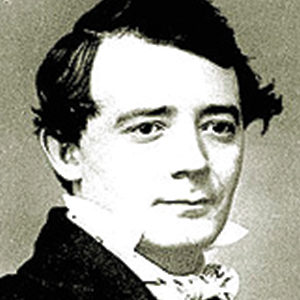 Septimus Winner (May 11, 1827 – November 22, 1902)
Septimus Winner (May 11, 1827 – November 22, 1902)
Born in Philadelphia, Pennsylvania, Septimus was the seventh child of violin maker Eastburn Winner. Although he largely taught himself to play musical instruments during his youth, he did receive some formal tuition from violinist Leopold Meignen. At the age of just twenty he opened a musical salon where he gave lessons in violin, guitar and banjo. He was to become a locally-respected teacher and performer, giving regular concerts with ensembles such as the Philadelphia Brass Band and the Musical Fund Society. 1845 saw him venture into business with his brother Joseph, when the duo formed their own musical publishing firm.
The original partnership lasted nine years, although Septimus was to continue to run the business with other partners thereafter. It was during these years that he also began to compose seriously and prolifically. Although he wrote under a number of pseudonyms during his lifetime, one was to become the most famous: Alice Hawthorne. His own mother was a relative of the popular novelist Nathaniel Hawthorne, and the pseudonym was clearly influenced by this family connection.
Musical Style and Influences
Contents
Like many American composers of the mid-20th Century, his music was influenced by the spirit of a young nation and the trends of the day. Perhaps the most important of these sources were the Christian worship songs which were forming the new ‘gospel’ style; the popular ‘parlour’ songs which covered all themes from the deeply romantic to the comical, and of course the songs of patriotism which heralded the Civil War.
Often written for more than one voice, the songs are commonly strophic and based upon poetic texts. Verses sung in unison often break out into full-harmony choruses.
What was Septimus Winner Known For?
The Music of Septimus Winner
Septimus Winner is often remembered for his song “Give Us Back Our Old Commander: Little Mac, the People’s Pride”, which is surrounded by a somewhat bizarre story. The Union General George McClellan had been removed from his command during the war. Considering the General to be quite the hero, Winner composed the song as an appeal to President Lincoln to return him to his post. Despite its popularity – it sold eighty thousand copies in just a few days – it was branded ‘anti-Union’.
Winner was court-martialed and served a (brief) period in jail. It was only upon his agreement to destroy all remaining copies of the song that he was eventually released. Not to be outdone, he quickly (and perhaps cheekily) composed “Oh Where, Oh Where Has My Little Dog Gone”: perhaps a reference to the earlier work, which itself resurfaced when McClellan ran for the presidency in 1864.
Septimus Winner Most Famous Works
A most remarkable aspect of his output is the huge amount of music written for educational purposes and to assist musical development. Although he penned over 200 popular songs, this almost appears slight when compared to the 1500 arrangements for various instruments, as well as around 2000 other arrangements for violin and piano. He furthermore wrote no less than 200 books of musical instruction and methods for 23 instruments.
The composer of “Listen to the Mockingbird” (1855), “How Sweet Are the Roses” (1850), “The Birdies’ Ball” (1869) and “Whispering Hope” (1868) was a truly valuable figure in the history of American music. The Songwriters Hall of Fame inducted him in 1970.
